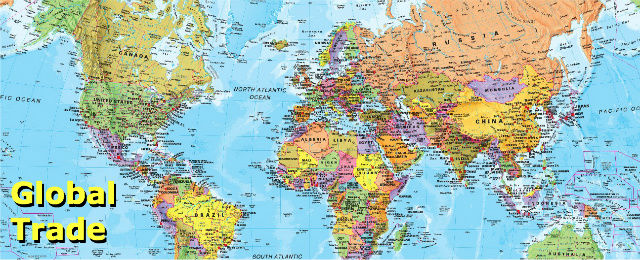Randy Zook: Trade Promotion Authority Promotes Level Playing Field, Job Creation
by May 11, 2015 9:10 am 150 views

Editor’s note: Randy Zook, the author of this guest commentary, is the President and Chief Executive Officer of the Arkansas State Chamber of Commerce and the Associated Industries of Arkansas.
Congress faces an important choice in the months ahead as it considers a bill to renew Trade Promotion Authority (TPA). TPA is vital because economic growth and job creation at home depend upon our ability sell American goods and services to the 95 percent of the world’s customers living outside the United States.
Many Americans are already seizing these opportunities. Nationally, one in four manufacturing jobs depends on exports, and one in three acres on American farms is planted for consumers overseas.
Here in Arkansas, trade plays a big role in our economy. Trade supports more than 342,300 jobs in the state. Arkansas’ exports of goods and services reached $10.8 billion in 2013. Large Arkansas employers like Tyson Foods, Nucor Steel, Domtar Paper, Riceland Foods, Baldor Electric Company and many others are actively engaged in export sales of their products.
Trade is especially important for our state’s small businesses, more than 1,500 of which are exporters. The state’s top export markets are Canada, China and Mexico.
However, the international playing field is often unfairly tilted against our workers and companies. While the U.S. market is generally open, our exports face foreign tariffs that often soar into double digits, as well as a thicket of nontariff barriers.
Trade agreements are crafted to tear down these barriers. By creating a level playing field, they help U.S. companies and the workers they employ compete in overseas markets.
While our 20 trade agreement partners are home to just 6 percent of the world’s population, they buy nearly half of all U.S. exports. Further, if you’re worried about the trade deficit, trade agreements aren’t the problem—they’re the solution: The U.S. has a trade surplus with its 20 trade agreement partners.
How can the U.S. seize more of these benefits? The good news is that the U.S. is taking part in two major trade negotiations. The first, the Trans-Pacific Partnership (TPP), involves 11 other Asia-Pacific countries from Japan to Australia.
The appeal of the TPP is simple. Two billion Asians joined the middle class in the past 20 years, and another 1.2 billion will do so by 2020. The TPP will help U.S. companies tap these booming markets.
In the second big negotiation, the U.S. and the European Union are pursuing a Transatlantic Trade and Investment Partnership (TTIP), the largest market for U.S. business.
U.S.-EU trade reaches $1 trillion annually and employs 15 million Americans and Europeans. Even so, eliminating today’s relatively modest trade barriers would bring big benefits.
However, to make either of these growth-driving trade agreements a reality, Congress must first approve Trade Promotion Authority (TPA). Under TPA, Congress sets negotiating objectives and requires the executive branch to consult extensively with legislators during negotiations. Every president since Franklin D. Roosevelt has had TPA; every president should have it.
The logic of trade is simple. Without TPA, the U.S. cannot negotiate new trade agreements to open foreign markets, spur economic growth and create American jobs. Without it, our standard of living and our standing in the world will suffer.
For the sake of growth and jobs, let’s renew TPA and seize the benefits of a robust international trade agenda.
